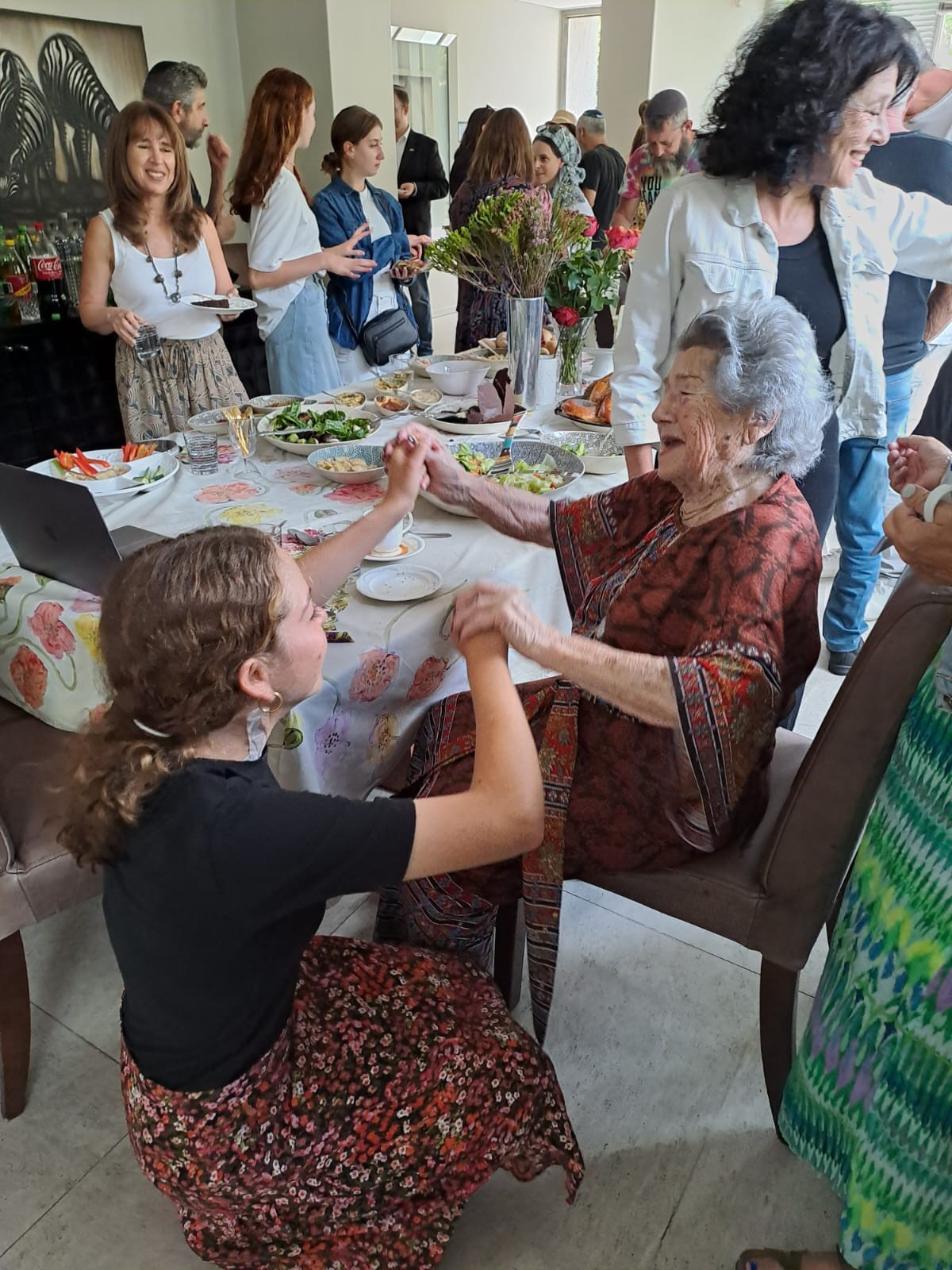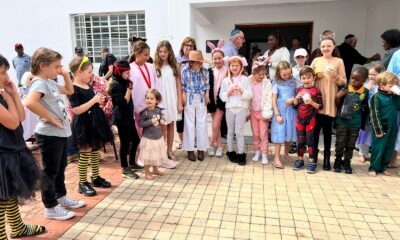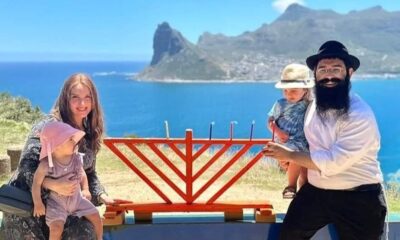
Featured Item

Home is where the heart is for miracle survivor
When Chanti Martin (23) noticed tingling in her fingers in 2021, she didn’t think much of it. But this symptom would send her into a confusing, frightening, and desperate search around the world for a specialist who would know what was wrong and how to heal her.
Until then, she was healthy, and had fulfilled her dream of making aliya after growing up in Cape Town and London, now studying neuroscience and psychology at Bar-Ilan University.
When she mentioned the symptom to her doctor, he examined her and couldn’t find a pulse in her right arm. After searching the globe, she miraculously found the doctor she needed right in her home city of Cape Town.
But her health challenges began as a mystery. “My doctor initially thought his equipment was faulty,” says Martin. “He sent me to the emergency room, and I spent 12 hours going from doctor to doctor. I came back the following day for an ultrasound. They seemed shocked at the results, saying something was terribly wrong.”
From there, she was hospitalised for a week. “Doctors and students treated me as an enigma. They did every test under the sun, all leading to the great discovery of … nothing! I was released from the hospital with aspirin, but doctors carried out more investigations. I had no understanding of the severity of my case until the moment I had my first serious stroke.”
At the beginning of the second year of her degree, she was diagnosed with suspected Takayasu Arteritis (TAK), a rare autoimmune disease that causes blood-vessel inflammation. Also known as “pulseless disease”, the inflammation damages the arteries, making parts of them weak, stretched, narrowed, or blocked. This can lead to strokes or aneurysm. It mostly affects women aged 20 to 40.
The first time she was hospitalised, Martin was told that her case was serious and potentially life threatening. “This sent shivers through my body. My whole life, I was known as ‘the healthy one’. I always prioritised exercise and a healthy diet. At first I resisted my situation, and wanted my normal life back. I was in shock at being surrounded by doctors and hooked up to machinery. But I realised that the only way to move forward was to surrender to G-d, and accept the situation.”
She was told she had no blood flow in key areas to her brain and restrictions in other areas. “Other blood vessels had compensated, but I was sparking off dangerous emboli. By the end of the year, I had had three major strokes and many small strokes. I had an allergic reaction to an infusion which dissolves clots. Thankfully, I recovered, but the stakes were much higher.”
To make things even more challenging, her diagnosis was made during the COVID-19 pandemic, and her family wasn’t allowed to visit her.
In July 2022, top rheumatologists in Israel discussed her case, and the majority opinion was to operate. “I had always been told that undergoing surgery was worst-case scenario. As Israel didn’t have the expertise, we were instructed to look overseas. My mother searched worldwide. It felt like a maze.”
Meanwhile, Martin returned to Cape Town, taking a break from her degree and hoping to spend a year “self-healing”.
“A close family friend, Andy Blecher, was concerned about my health. I had a few mini strokes in shul, and she believed another major stroke was imminent and we had to act soon. Andy is in the medical field, and when she discovered Dr James Tunnicliffe, she intuitively knew he was the surgeon we had been looking for – an endovascular surgeon specialising in TAK. We would never have found him as his experience in TAK wasn’t in his medical biography.”
Blecher’s discovery happened just as Martin and her mother, Nicole, drove five hours into the Karoo for a healing retreat. “On the second day, Andy called. She had managed to get us an appointment with Dr Tunnicliffe the next day, and wouldn’t take no for an answer.”
Dr Tunnicliffe said Martin would need open heart and triple bypass surgery immediately. “The risk of not having the operation was greater than having it. He said a stroke causing death or extensive neurological damage was imminent. If successful, my life expectancy would be as good as any healthy person.”
He went on to have two weeks of sleepless nights, redesigning the solution to create a new network of vessels. Martin, meanwhile, had to come to terms with having surgery.
During the weeks approaching the operation, “the fear in my house was tangible, but a couple of days before, I felt a shift in my family, feeling supported by our community around the globe. Challah bakes and prayer groups were organised around the world. As I was wheeled into theatre, I felt at peace and asked my parents that no matter what happened, they wouldn’t lose their faith. I felt completely held by G-d, and surrounded by tefillot.”
Martin is now recovering in Cape Town. “I’m slowly doing things that I wasn’t allowed to previously, like a slow jog,” she says. “I still have some symptoms that Dr Tunnicliffe can’t explain, but I trust that it’s all in Hashem’s hands and I’ll make a full recovery in the near future.”
The family hosted a joyous meal of thanks celebrating the miracle, and a highlight was when Martin danced with close family friend, Holocaust survivor Ella Blumenthal. “I felt an overwhelming sense of awe at Hashem’s loving kindness. Having Ella there was a huge merit. It was such an honour to celebrate with someone who feels so much gratitude towards Hashem in spite of having experienced some of the greatest challenges. Ella has always been my role model.”
Martin and her family are deeply grateful to the Cape Town community and family and friends, “who cared for me as if I was their own child or sister”.










